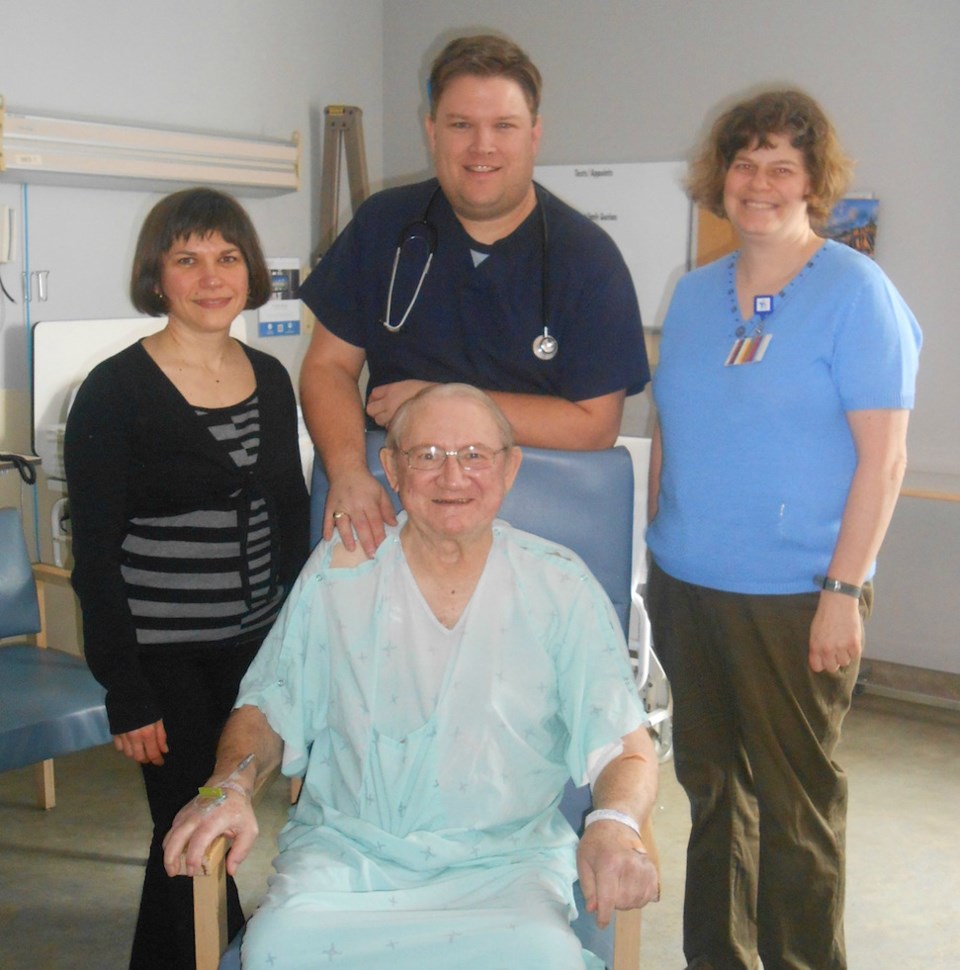NEWS RELEASE
TIMMINS AND DISTRICT HOSPITAL
*************************
Over the last year, the staff at Timmins and District Hospital have been learning more about providing care to seniors in the community.
The learning has focused on the screening patients over the age of 65 for conditions such as delirium, risk for falls, skin breakdown, and now decline in function.
Additional learning about dementia and dementia care, called the Gentle Persuasive Approach has taken place and will continue on a regular basis.
Learning has been provided through a variety of methods such as short class room teaching, day long workshops and on-line learning available on the Hospital intranet.
To further support the staff, protocols have been developed for delirium and functional decline, along with patient/family information pamphlets in both official languages.
The staff has ongoing additional education for previously developed protocols on wound care and pressure ulcer development, which includes patient/family information called “Taking the Pressure Off: Preventing Pressure Ulcers”.
In early January 2016, the roll out of “Get to Know Me and My Family” communication tool took place.
This tool will allow the staff to become more familiar with aspects of the person’s life, including likes, dislikes, hobbies, important people and events.
“Understanding the person behind the disease is vital in providing better and more personal care for each patient” said Peter Gooch Registered Nurse, Staff Educator, Integrated Medical Program.
The staff will enlist the assistance of the patient and family to complete the tool for patients who are in Hospital greater than 7 days with discharge not imminent (24 to 48 hours).
Nurses assess how much of the self-care a person can do and will monitor and assist them with this care when necessary.
Mobility is a life-essential skill and supporting walking/mobilization optimizes the senior’s function, independence and quality of life.
The pamphlet called “Keep Moving: Myths & Facts about Being Active in the Hospital” and supports years of research about the benefits of keeping patients moving.
Myths:
-
Patients should stay in bed because they will get better faster if they rest.
-
It is not safe for patients to get out of bed.
-
Patients are not supposed to do their own personal care, such as washing or dressing.
These mistaken beliefs often lead patients to lose the ability to do things they want to do, and to have difficulty coping when they go home.
Facts:
-
Research shows that bed rest is not a good way to recover and may actually make recovery time longer.
-
Staying in bed and not moving can lead to problems with breathing, skin breakdown (bed sores), muscle loss, weakness, tiredness and confusion.
-
“If you don’t use it, you lose it!” People who stay in bed are at risk of losing their ability to move around and do their own personal care, such as washing and dressing.
Staff encourage patients to stay active in the Hospital by asking them to perform tasks they were able to do at home, such as dressing or walking to the washroom.
Other examples of activities include staying active including sitting up for all your meals, either in a chair or at the edge of the bed, sitting up in a chair when you have visitors, walking around the unit, either alone or with help and even doing bed exercises on their own throughout the day.
“It is much easier to maintain strength and mobility than to try to regain it. If they have difficulty with these activities we encourage them to ask for help” said Lori Smith, Senior Inpatient Physiotherapist.
Benefits of staying active in the Hospital include better breathing, the ability to fight infections, appetite, sleep, mood and ability to manage at home, as well as less skin breakdown (bed sores), weakness and fatigue, dizziness, falls, pain and confusion.
The discharge goal is to have the patient go back to the home they left, unless it has been determined they cannot.
“Their homes are full of their memories and are familiar and comforting” said Debbie Cecconi, Registered Nurse, Staff Educator.
TADH encourages staff, friends and family to become involved in senior friendly care.
Should you or someone you know want to know more please contact the Organizational Performance department at 705-267-2131 ext. 2193.
The Timmins and District Hospital (TADH) is a level C, fully accredited community, referral and teaching hospital serving the residents of the City of Timmins and Cochrane District as well as the adjoining areas of the Temiskaming, Sudbury and Algoma districts.
The hospital offers a full range of medical, surgical, critical care, maternity, newborn, pediatric, long-term care, mental health and diagnostic imaging services.
*************************



